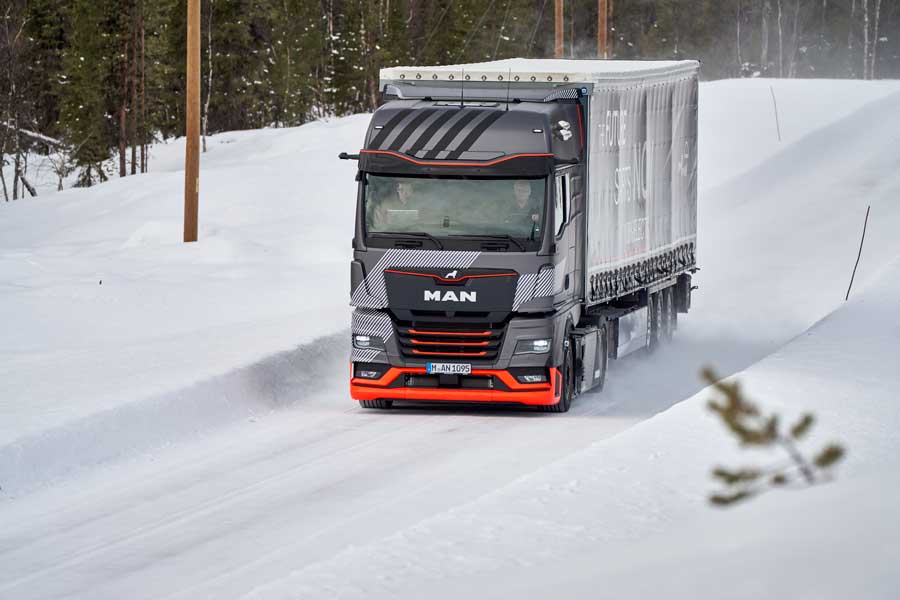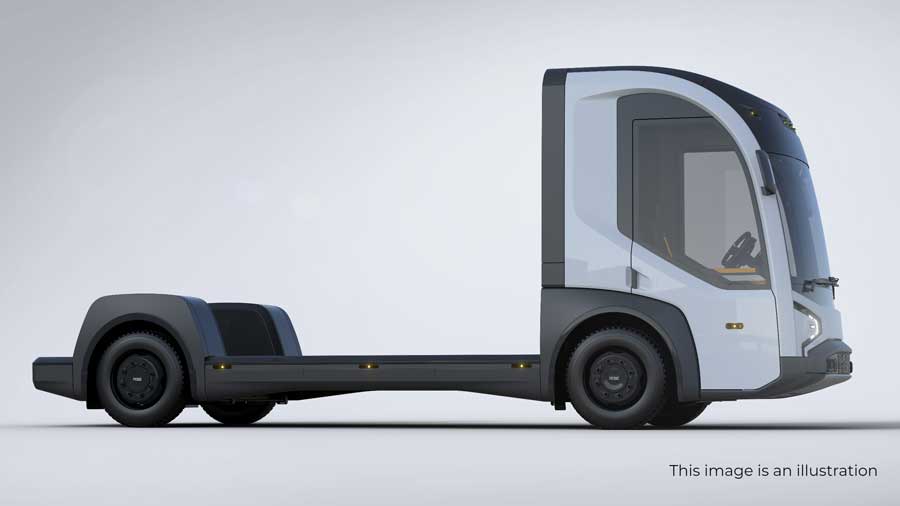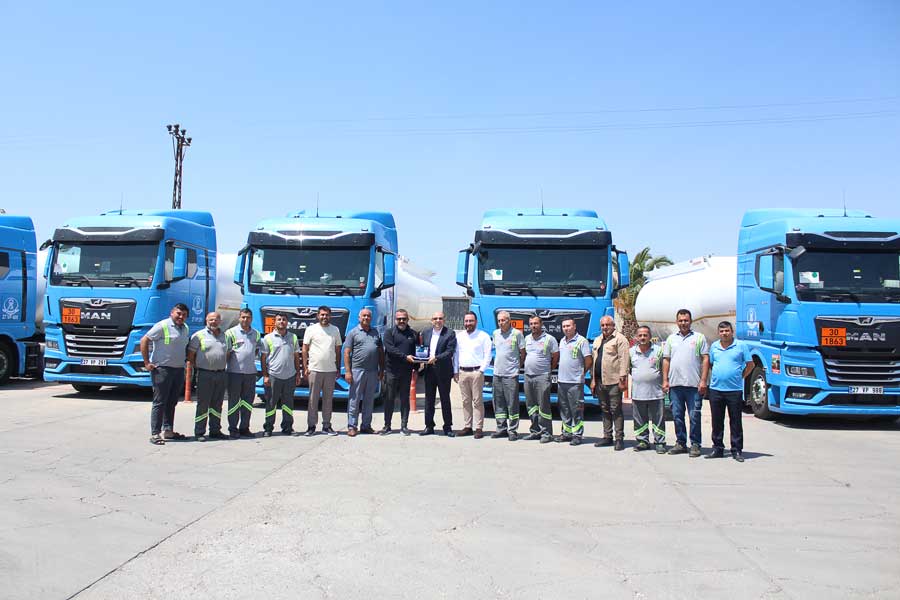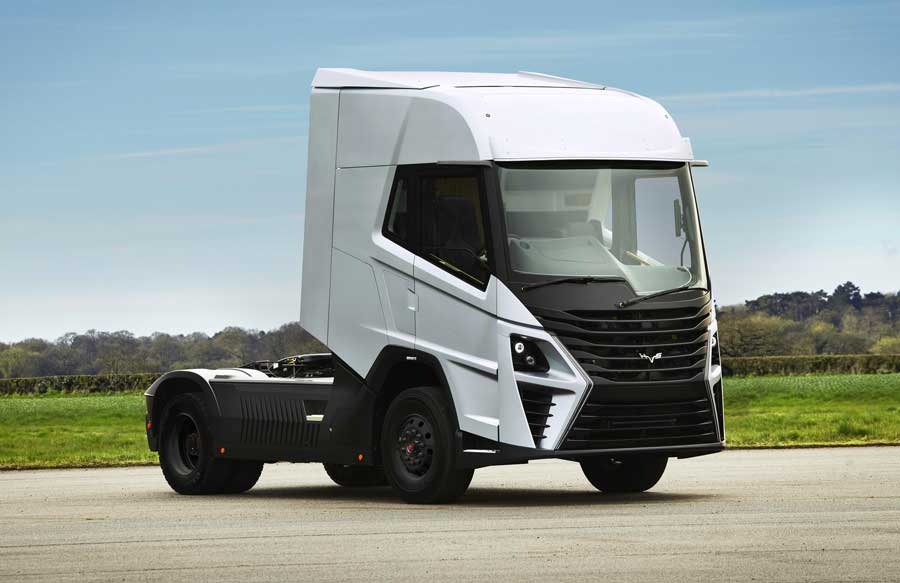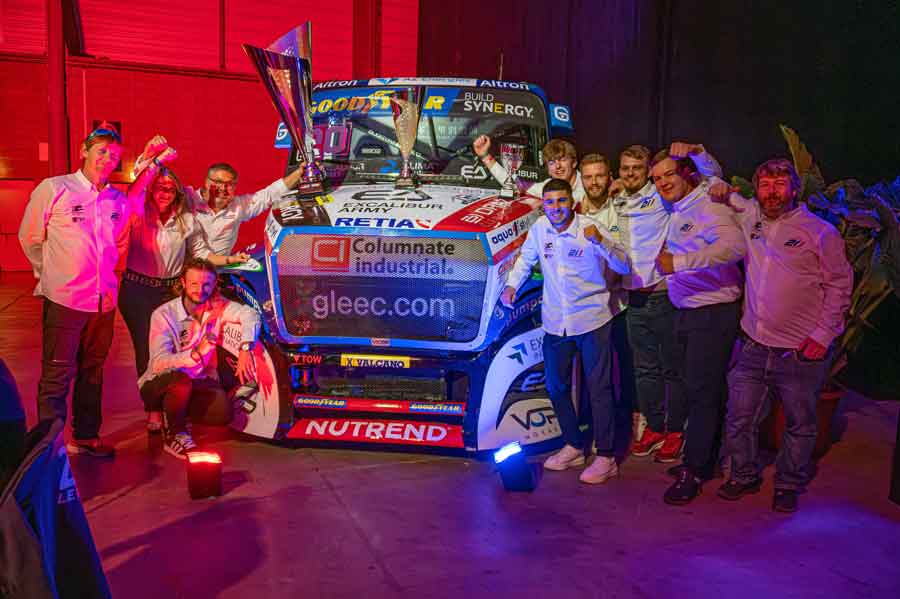From December to March, MAN integrated the upcoming large-series e-truck into its annual winter testing in northern Sweden. There, the MAN eTruck, which is suitable for daily ranges of between 600 and 800 kilometres, proved that it also works without problems in ice, snow and temperatures as low as minus 40 degrees. Driving functions and range, air conditioning and charging behaviour were the focus of thousands of successful electric test kilometres under Arctic conditions.
“The winter tests were a complete success. Our engineers literally put the new eTruck through its paces day and night under the toughest conditions. The maturity level is already extremely high and the development team is working with great passion on the further trials to provide our customers with an optimal product for the switch to CO2-free road freight transport,” says Dr Frederik Zohm, Executive Board Member for Research and Development at MAN Trucks & Bus.
Around 30 test engineers braved the polar winter with freezing cold, snow-storms and only a few hours of daylight for around four months to bring the new MAN eTruck further towards series production readiness. In the process, they tested the overall energy management, the cooling and thermal management of the battery packs, the interaction and control of the powertrain components as well as the charging behaviour under the extreme winter conditions, among other things, on four prototypes with different battery, e-motor, transmission, axle and cab configurations of the later series production range.
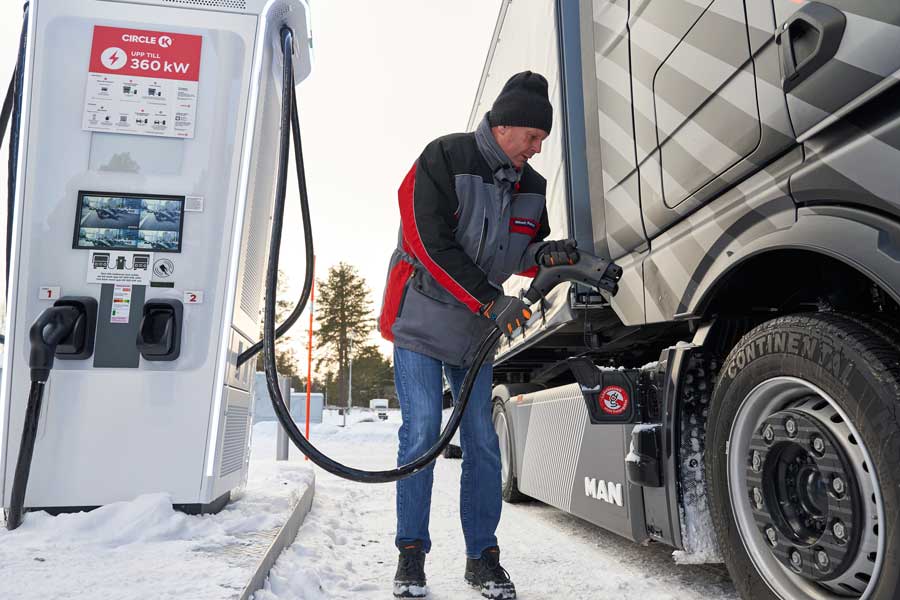
“Interdisciplinary teams are the key to making the eTruck ready for all customer requirements and operating conditions. Our goal is to be able to cover a large part of today’s application portfolio electrically with the new eTruck. The CO2-free long-distance transport of refrigerated goods in the classic semitrailer combination will be just as possible as the collection of milk from the organic farmer with the electric food tanker or the low-noise and emission-free waste disposal in the city,” explains Rainer Miksch, Vice President Vehicle Testing, MAN Truck & Bus.
The winter test was just the beginning of a series of numerous vehicle and component tests that will put the new MAN eTruck through its paces until its market launch. Batteries have to prove their resistance to open fire, immersion in water and a free fall to the ground, individual components as well as the entire vehicle have to pass demanding crash tests, but also noise measurements and tests on electromagnetic compatibility are just some of the numerous upcoming validations that will make the truck ready for series production.
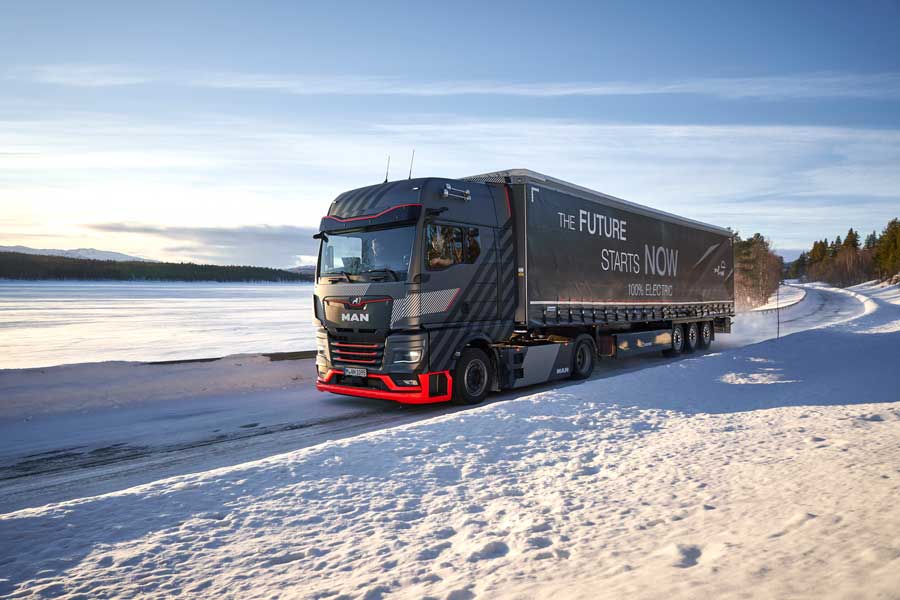
In addition, the new eTruck will cover many hundreds of thousands of kilometres in continuous operation on European roads. In addition to winter testing, this also includes so-called hot-land testing in the south of Spain with outside temperatures well above plus 40 degrees and strong sunlight, which heats components to an extreme and places very specific demands on the temperature control of the batteries, the charging management system and also the powertrain components, as Rainer Miksch emphasises: “Meeting the sometimes extremely different operating conditions with regard to the diverse applications of our customers is the fine art of commercial vehicle development. But now that the eTruck has more than fulfilled our expectations in winter testing, the entire test and development team is already looking forward to the upcoming validations and summer testing in order to get one step closer to large-scale production of the electric truck again.”


